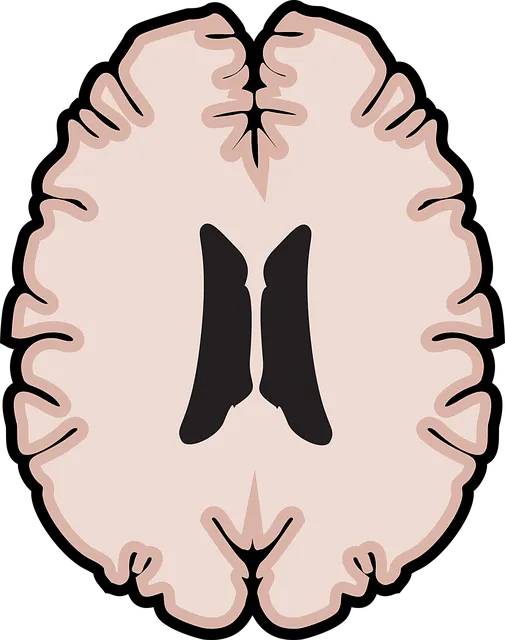Lakewood Kaiser Permanente's psychiatry services are vital in crisis intervention, offering immediate support and evidence-based treatments. Their trained professionals use de-escalation techniques, active listening, and Mind Over Matter principles for effective communication during crises. Post-crisis care focuses on personalized recovery plans incorporating Compassion Cultivation Practices to promote long-term well-being. Positive Lakewood Kaiser Permanente psychiatry reviews attest to their transformative impact in healthcare settings.
“In times of crisis, effective intervention can make a world of difference. This comprehensive guide explores vital strategies for navigating emergency situations, drawing on insights from leading psychiatrists at Lakewood Kaiser Permanente—as reviewed by industry experts. From understanding the complexities of crisis intervention to mastering communication techniques and implementing post-crisis support, this article equips readers with essential tools. Discover how to recognize signs, respond swiftly, and foster recovery in diverse settings.”
- Understanding Crisis Intervention: A Brief Overview
- The Role of Psychiatry in Emergency Situations
- Effective Communication Techniques During Crises
- Post-Crisis Support and Recovery Strategies
Understanding Crisis Intervention: A Brief Overview

Crisis intervention strategies are vital tools designed to provide immediate support and guidance during moments of intense stress or traumatic events. This proactive approach is particularly crucial in healthcare settings, where professionals often encounter high-stress situations daily. At Lakewood Kaiser Permanente, psychiatry reviews highlight the importance of efficient crisis intervention as a game-changer in patient care.
Understanding crisis intervention involves recognizing the signs of distress and implementing effective techniques to de-escalate situations. It equips individuals with the skills to foster inner strength development and burnout prevention strategies for healthcare providers. By integrating stress management techniques into their practice, professionals can enhance their ability to navigate challenging scenarios, ensuring they remain composed and effective in delivering quality care.
The Role of Psychiatry in Emergency Situations

In emergency situations, psychiatry plays a pivotal role in crisis intervention strategies. The expertise of Lakewood Kaiser Permanente psychiatry professionals is invaluable when individuals face acute mental health crises. These experts are trained to provide immediate support and assess the severity of the situation, offering evidence-based treatments tailored to each patient’s unique needs. By integrating various therapeutic approaches, such as cognitive behavioral therapy and medication management, psychiatrists aim to stabilize individuals and foster resilience building.
Public awareness campaigns development and self-awareness exercises are also integral components of this process. Psychiatrists often work closely with community resources to educate the public on recognizing signs of distress, encouraging early intervention, and promoting mental health literacy. This collaborative effort not only ensures effective crisis management but also contributes to long-term solutions by fostering a supportive environment that prioritizes mental well-being, as evidenced by positive Lakewood Kaiser Permanente psychiatry reviews.
Effective Communication Techniques During Crises

In moments of crisis, effective communication becomes a cornerstone of successful intervention. At Lakewood Kaiser Permanente psychiatry reviews often highlight the significance of active listening, where mental health professionals show genuine interest and empathy while patients express their fears and concerns. This simple yet powerful technique fosters trust and encourages individuals to open up, sharing details crucial for assessment and planning.
Additionally, Mind Over Matter principles can be applied to guide individuals through crises. Using clear and calming language, professionals can help individuals reframe their perspectives, offering hope and a sense of control. Risk Management Planning for Mental Health Professionals further enhances this by incorporating Conflict Resolution Techniques, enabling practitioners to navigate intense situations with composure. These strategies ensure that communication remains constructive, promoting better outcomes in crisis intervention.
Post-Crisis Support and Recovery Strategies

Post-crisis support is a vital phase in the recovery process, and at Lakewood Kaiser Permanente, our psychiatry reviews emphasize the importance of holistic care. Following a traumatic event or intense crisis, individuals often require sustained guidance and resources to navigate their journey towards healing. Our mental health professionals work collaboratively with patients to develop personalized recovery plans that cater to their unique needs.
This phase involves implementing various strategies such as Compassion Cultivation Practices, which foster self-compassion and resilience. By integrating these practices into daily routines, individuals can better manage stress, anxiety, and potential burnout, all of which are key aspects addressed in our psychiatry reviews at Lakewood Kaiser Permanente. We also guide patients towards engaging in meaningful activities, building supportive networks, and adopting healthy coping mechanisms to ensure long-term well-being and prevent future crises.
In light of the critical importance of crisis intervention, as highlighted by Lakewood Kaiser Permanente psychiatry reviews, it’s clear that a multifaceted approach is essential. By understanding the core principles outlined in this article—from recognizing signs and initiating communication to providing post-crisis support—individuals and communities can better navigate and mitigate emergency situations. Integrating these strategies can help foster resilience and ensure individuals receive the necessary care and support during challenging times.






